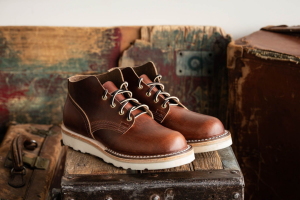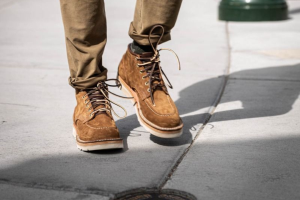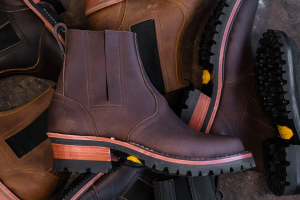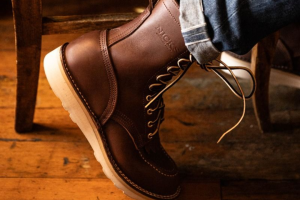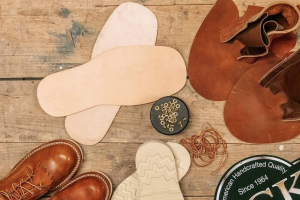Get The Most Out Of Your Work Day With These High-Performance Work Boots
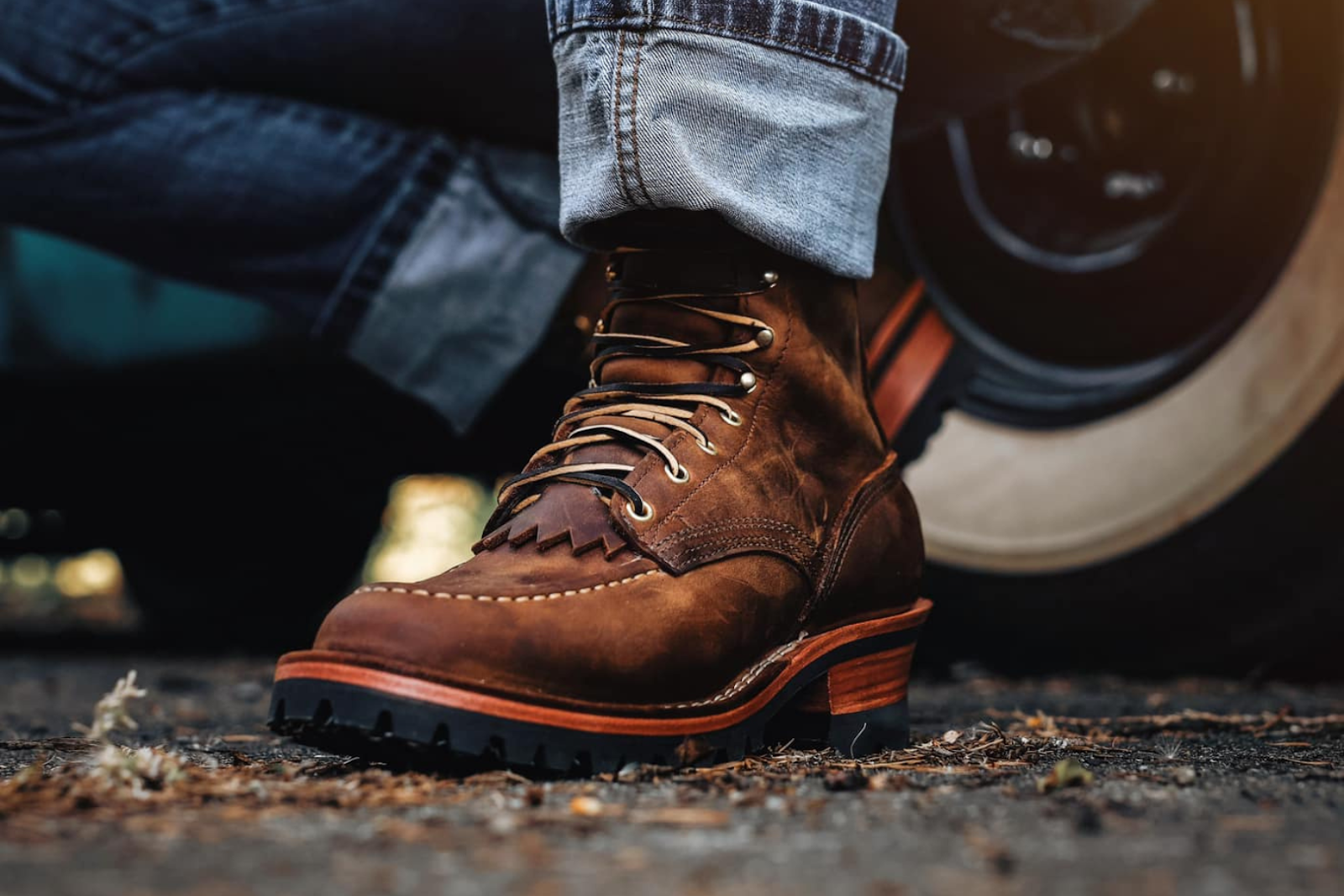
If you're someone who works on your feet all day, you know the importance of having the right footwear. In this article, we'll cover everything you need to know about work boots, including their benefits, how they work, and the alternatives available. Whether it's for work or pleasure, finding quality boots that last is essential. So, let's dive right in!
Elevate your style, support the trades, and experience the legacy of craftsmanship with Nicks Boots. Our legendary leather goods, including our famous work boots, are meticulously crafted by a team of highly skilled artisans. It's more than just a product; it's a symbol of dedication and tradition.
What Are Work Boots?
Work boots are a type of footwear specifically designed to provide comfort, support, and protection for individuals who work in physically demanding environments.1 These boots are built to withstand heavy use and harsh conditions, making them an ideal choice for people in industries such as construction, manufacturing, and agriculture.
Elevate Your Craft With Nicks Handmade Boots
Join the Legacy:
|
What Materials Are Commonly Used In High-Quality Work Boots?
High-quality work boots are crafted using durable materials that ensure longevity and performance. Here are some commonly used materials:
- Full-Grain Leather: Full-grain leather is considered the highest quality leather and is known for its durability and natural breathability.2 It offers excellent protection against abrasions and is resistant to water and minor impacts. If you're looking for boots that exemplify the best use of full-grain leather, Nick's Boots is a testament to this, crafting all their boots exclusively with premium full-grain leather to ensure top-notch quality and durability.
- Nubuck Leather: Nubuck leather is similar to full-grain leather but has a slight grain that gives it a velvety appearance. It offers a softer feel and is often used in work boots for their aesthetic appeal.
- Synthetic Materials: Synthetic materials, such as nylon, polyester, or PVC, are often used in work boots to provide lightweight construction, flexibility, and affordability. These materials also offer water and abrasion resistance.
- Rubber Outsoles: Work boots feature rubber outsoles that provide traction and slip resistance. High-quality rubber outsoles are durable and often have specialized tread patterns to enhance grip on various surfaces.


Different Types Of Work Boots
When it comes to work boots, there are various types available to suit different work environments and job requirements. Here are some common types of work boots:
Steel Toe Boots
Steel toe boots feature a steel toe cap that protects your toes from heavy objects or compression. They are widely used in construction, manufacturing, and other industries that involve potential foot injuries.
Composite Toe Boots
Composite toe boots are made with non-metallic materials such as Kevlar, carbon fiber, or plastic. They offer similar protection to steel-toe boots while being lighter and non-conductive to temperature or electricity.
Insulated Boots
Insulated work boots are designed for jobs in cold weather conditions. They have additional layers of insulation, such as Thinsulate, to provide warmth and protect your feet from extreme temperatures.
What Are The Benefits Of Work Boots?
Investing in a pair of high-quality work boots offers numerous benefits. Here are a few advantages to consider:
- Durability: Work boots are designed to withstand heavy use and rough conditions, making them a long-lasting investment.
- Versatility: Work boots are not just limited to the workplace. Many people find them stylish and comfortable for everyday wear, whether it's for hiking, camping, or other outdoor activities.
- Boost Productivity: By providing comfort, support, and safety, work boots help minimize fatigue and foot pain, allowing you to stay productive throughout your workday.
- Comfort: With their supportive features, work boots ensure comfort and reduce strain on your feet, allowing you to focus on your work without discomfort.
If you desire a completely personalized boot experience, Nicks Customizable Boots provides the chance to customize every element of your boots, including the fit and design, guaranteeing that you receive the ideal pair that suits your individual requirements.
Safety Features In Work Boots
Work boots are equipped with several safety features to protect your feet from hazards.3 Here are some common safety features to look for:
- Toe Protection: Steel or composite toe caps offer protection against heavy objects and compression. They meet safety standards and regulations to ensure maximum safety in hazardous work environments.
- Electrical Hazard (EH) Protection: Work boots with electrical hazard protection have soles designed to insulate against electrical shocks. They provide an extra layer of safety for those working with electrical equipment or in environments with electrical hazards.
- Slip Resistance: Many work boots have slip-resistant outsoles that meet specific industry standards for slip resistance. These outsoles provide added traction and help prevent slips and falls on slippery surfaces.
- Puncture Resistance: Some work boots feature puncture-resistant plates in the midsole to protect against sharp objects on the ground. This feature is particularly important for individuals working in construction, manufacturing, or waste management.
- Heat Resistance: Certain work boots are designed to withstand high temperatures and protect your feet from heat hazards, such as molten metal or hot surfaces. These boots have special heat-resistant materials and construction.
Maintaining And Cleaning Your Work Boots
Proper maintenance and cleaning are essential to prolong the lifespan of your work boots. Here are some tips to maintain and clean your boots:
- Regular Cleaning: Remove dirt and debris from your boots regularly using a soft brush or damp cloth. This prevents dirt buildup and keeps the boots looking clean.
- Conditioning: Use a leather conditioner appropriate for your boots to prevent drying, cracking, and water damage. Apply the conditioner according to the manufacturer's instructions.
- Drying: After exposure to water or excessive moisture, allow your boots to air dry naturally. Avoid drying them near direct heat sources, as it can damage the materials.
- Storage: Store your boots in a cool and dry place, away from direct sunlight. This helps to prevent discoloration, warping, or deterioration.
- Replacing Insoles: If the insoles of your boots become worn out or lose their cushioning, consider replacing them regularly to maintain optimal comfort and support.
To maintain the perfect condition of your boots, explore the Nicks Ultimate Boot Care Kit, which includes all the necessary tools for a thorough cleaning solution, ensuring your boots always look their best, regardless of how frequently they require maintenance.
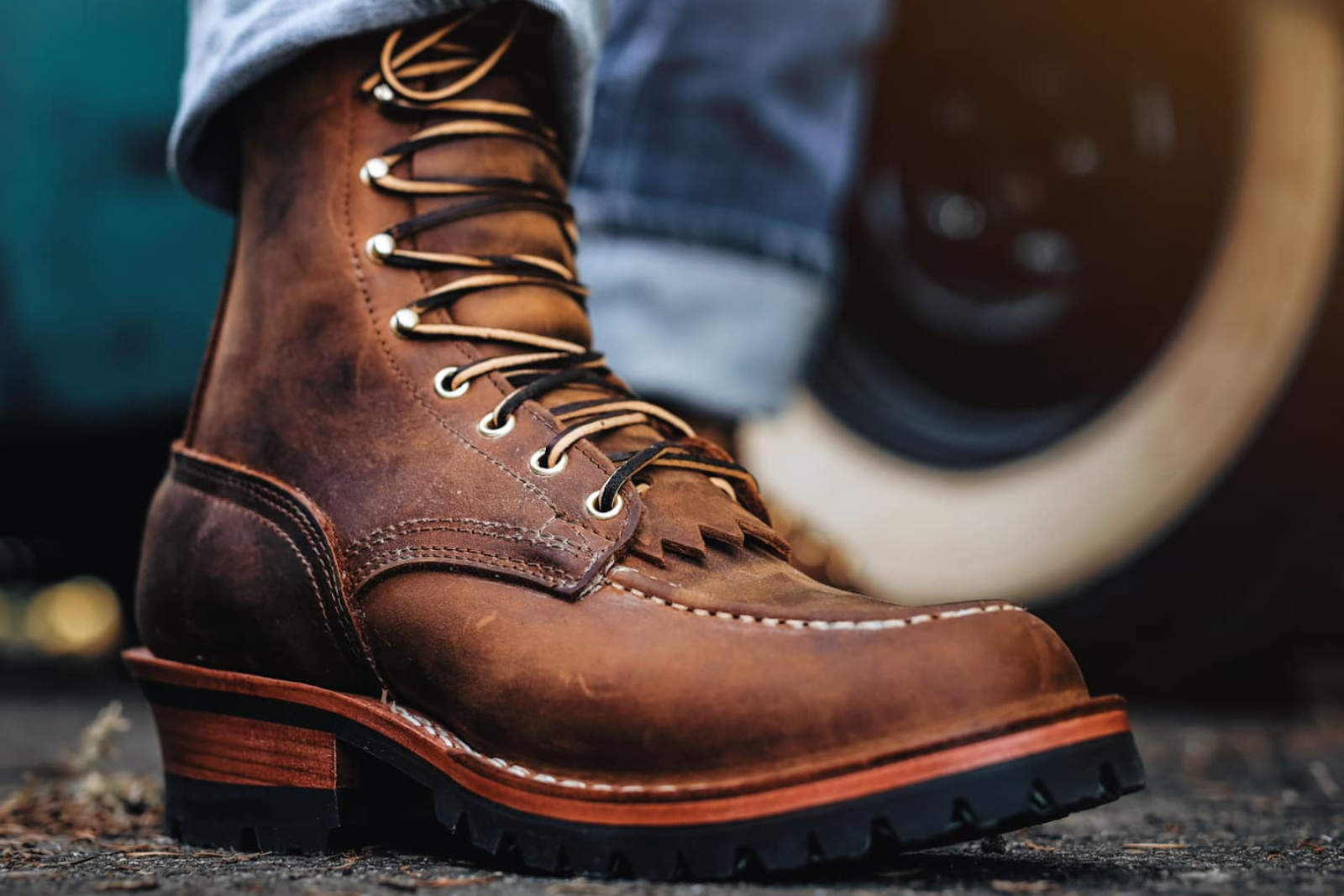

What Are The Alternatives To Work Boots?
If work boots are not an ideal choice for you, there are alternative options available. Here are a few alternatives to consider:
Safety Shoes
Safety shoes are similar to work boots but are more lightweight and resemble traditional athletic shoes. They provide essential protection while offering a more casual and flexible design.
Hiking Boots
Hiking boots offer excellent ankle support, durability, and traction, making them a great alternative for outdoor jobs or occupations that involve a lot of walking.
Sneakers
Certain workplaces with less demanding safety requirements may allow sneakers with slip-resistant soles. However, it's important to check with your employer and consider the specific hazards of your job before opting for sneakers.
Final Thoughts On Work Boots
Work boots play a vital role in ensuring safety, comfort, and productivity in various work environments. The benefits of investing in high-quality work boots are numerous, from providing protection against workplace hazards to reducing fatigue and foot pain. Work boots are not just a functional necessity but also a symbol of craftsmanship and durability.
At Nicks Boots, we understand the importance of quality craftsmanship in work boots and leather goods. Our mission is to create fine leather products that stand the test of time. From our renowned boots to other leather goods, we pride ourselves on using the best materials and expert craftsmanship to deliver products that exceed expectations.
Discover the heart and soul of Nicks Boots. Join us in celebrating craftsmanship, empowering the trades, and experiencing the legacy of quality. Start your journey with us today, and step into a world where every boot tells a story.
Frequently Asked Questions About Work Boots
Is it necessary to break in work boots?
While some work boots may require a break-in period to soften and mold according to your feet, not all work boots necessarily need breaking in. This largely depends on the brand and materials used. It's always a good idea to try on the boots and walk around in them for a bit to ensure a comfortable fit before committing to them.
Can work boots be resoled?
Yes, many high-quality work boots can be resoled. This can prolong the lifespan of your boots and save you money in the long run. However, not all work boots are resoleable, so it's important to check with the manufacturer or a cobbler to see if your specific boots can be resoled if needed.
How often should I replace my work boots?
The lifespan of work boots can vary depending on factors such as the frequency of use, work environment, and maintenance. However, a general guideline is to replace your work boots every 6 months to 2 years. Regularly inspect your boots for signs of wear, such as worn-out soles, damaged toe caps, or decreased support and cushioning. If you notice any significant deterioration or if they no longer provide adequate safety or comfort, it's time to replace them.
Can I use work boots for casual or everyday wear?
Yes, many people find work boots not only suitable for the workplace but also for casual or everyday wear. However, keep in mind that work boots may have a heavier and sturdier construction compared to regular shoes, so they may feel different initially. Consider factors such as style, fit, and comfort when deciding to use work boots for non-work purposes.
Are work boots suitable for people with foot conditions or specific medical needs?
Work boots can be a suitable choice for individuals with foot conditions or specific medical needs, but it's important to consult with a healthcare professional or specialist. They can provide guidance and recommend work boots that offer the necessary support and features to accommodate your specific needs. Custom orthotics or insoles may also be beneficial for additional support and comfort.
Can I wear work boots with a dress code that requires black shoes?
Some work boots come in black and can be suitable for dress codes. Look for models that combine style with safety features.
What is the importance of arch support in work boots?
Arch support in work boots can prevent foot fatigue and reduce the risk of conditions like plantar fasciitis. It's crucial for maintaining long-term foot comfort and health.
Can I add extra insulation to my work boots for colder weather?
Yes, you can add insulated insoles or wear thicker socks to make your work boots warmer in cold weather. Additionally, choosing boots with built-in insulation is a great option.
What is the purpose of a shank in work boots?
A shank in work boots provides arch support and stability, reducing foot fatigue and discomfort. It also helps distribute the weight of your body evenly across your feet.
How do I choose the right size for work boots when shopping online?
When shopping online, refer to the manufacturer's sizing chart and read customer reviews for guidance. Ensure that the retailer has a good return policy in case the boots don't fit correctly.
Sources:
- Anderson, J., Williams, A. E., & Nester, C. (2017). An explorative qualitative study to determine the footwear needs of workers in standing environments. Journal of Foot and Ankle Research, 10(1). https://doi.org/10.1186/s13047-017-0223-4
- Wilson, D., Tsigkou, O., Bosworth, L., & Jones, C. (2023). Leather-like materials by cellular agriculture. Textile Progress, 55(1), 1–45. https://doi.org/10.1080/00405167.2023.2188835
- Dobson, J. A., Riddiford-Harland, D. L., Bell, A. F., & Steele, J. R. (2017). Work boot design affects the way workers walk: A systematic review of the literature. Applied Ergonomics, 61, 53–68. https://doi.org/10.1016/j.apergo.2017.01.003
